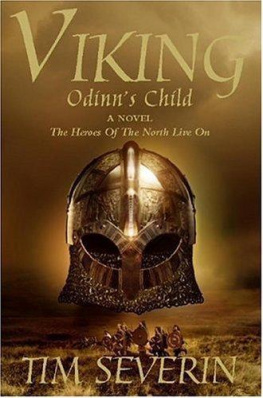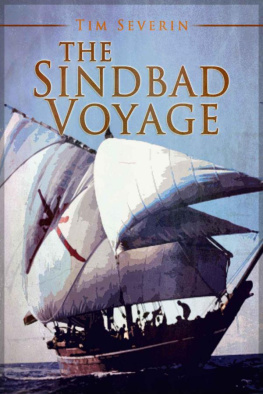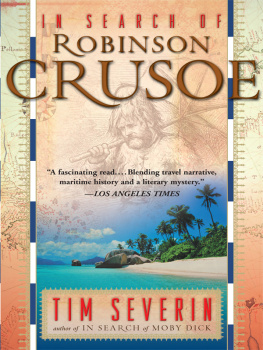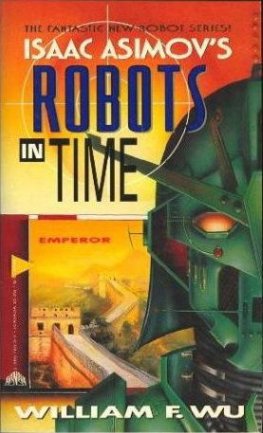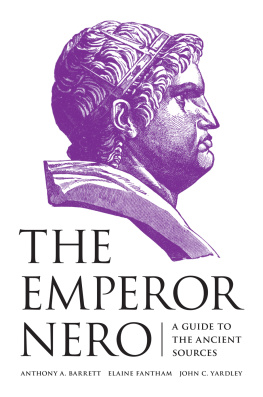Tim Severin - The Emperor's Elefant
Here you can read online Tim Severin - The Emperor's Elefant full text of the book (entire story) in english for free. Download pdf and epub, get meaning, cover and reviews about this ebook. genre: Adventure. Description of the work, (preface) as well as reviews are available. Best literature library LitArk.com created for fans of good reading and offers a wide selection of genres:
Romance novel
Science fiction
Adventure
Detective
Science
History
Home and family
Prose
Art
Politics
Computer
Non-fiction
Religion
Business
Children
Humor
Choose a favorite category and find really read worthwhile books. Enjoy immersion in the world of imagination, feel the emotions of the characters or learn something new for yourself, make an fascinating discovery.

- Book:The Emperor's Elefant
- Author:
- Genre:
- Rating:4 / 5
- Favourites:Add to favourites
- Your mark:
- 80
- 1
- 2
- 3
- 4
- 5
The Emperor's Elefant: summary, description and annotation
We offer to read an annotation, description, summary or preface (depends on what the author of the book "The Emperor's Elefant" wrote himself). If you haven't found the necessary information about the book — write in the comments, we will try to find it.
The Emperor's Elefant — read online for free the complete book (whole text) full work
Below is the text of the book, divided by pages. System saving the place of the last page read, allows you to conveniently read the book "The Emperor's Elefant" online for free, without having to search again every time where you left off. Put a bookmark, and you can go to the page where you finished reading at any time.
Font size:
Interval:
Bookmark:
Tim Severin
The Emperor's Elephant
Prologue
AACHEN, AD 793
They think it is a fragment from a shattered human skull. Bone white, it has the same dished shape, and is thin enough to be from a dead child. The clerks in the royal chancery glance at it with distaste as they pass my desk, giving me a wide berth. Possibly they imagine it is a gruesome memento from King Caroluss disastrous campaign against the Saracens in Hispania fifteen years ago. They know that I took part in that failed invasion and that, though wounded, I survived the bloody ambush of his armys rearguard during the retreat through the mountains. If the clerks presume that my swordsmanship saved me, they are wrong. The real reason was my friendship with the Saracens after I had lived among them and gained their trust, even though I was a spy.
Doubtless they also puzzle why the king himself still consults me from time to time, bypassing the royal council. They would be surprised to know that their most Christian and devout lord, Carolus, believes that dreams are a guide to the future. He asks my advice because I am someone who has been known to interpret the meaning of dreams and is himself a dreamer. Yet I am increasingly reluctant to provide the king with clear answers. Experience has taught me that dreams are rarely false but they often mislead. When their truth is finally revealed, the shock is all the greater. In the year before the Hispania campaign I dreamed of a giant Carolus on his warhorse and he was crying tears of blood. I had no idea then that it signified he would lose a third of his army and his favourite nephew and my patron, Count Hroudland, in that wretched ambush. And even if I had foreseen what was to happen, I could not have changed the outcome.
So when a dream provides me with a glimpse of the future, the prudent course is to hold my tongue.
Recalling the past requires similar caution. The story I will set down touches on a royal secret being kept from Carolus, here in Aachen. Should he learn what I am concealing from him, I would be disgraced. So I intend the tale as a purely private record of a journey to distant, little-known lands. That is why I have placed the little bone-white chip with its ragged edges in plain view on my desk. People steer clear of bits of skulls though that is not what it is and this will keep my written pages from prying eyes.
Chapter One
THE NORTHLANDS
I lay face down on the soggy ground, trying to ignore the throb of pain in my left shoulder. The wound left by a Vascon spear point had healed cleanly, leaving a puckered scar, but the change of season still brought on a deep-seated ache. The dampness seeping through my clothes from the leaf mould beneath me was making matters worse. The only sounds were random splashes and drips as the oak forest around me shed a recent rain shower. Though it was mid-morning, the underfloor of the woodland remained gloomy and dank. The spring foliage of the giant trees blocked much of the daylight and the air was heavy with the loamy smell of decaying vegetation. Directly in front of where I lay, a glade some thirty paces across was open to the sky. Whenever a cloud moved away from the face of the sun the fresh raindrops glistened on blades of new grass and gave the clearing a clean, inviting look.
It was a deception. The centre of the glade was hollowed out. The pit was ten paces long, five wide and sheer sided. Dug to more than the height of a tall man, the empty space had been criss-crossed with a web of light withies to support a false covering of woven hurdles. The workmen had then spread a thin layer of turf sods that mimicked solid ground. In the very centre of the trap they had placed a pile of leafy branches cut from a bush believed to be the beasts favourite food. The bait to the pitfall.
Very slowly, I raised my head and looked to my left. An arms length away Vulfard, the kings chief verderer, was nestled. His leather leggings and jerkin, moss coloured and streaked with mud, blended perfectly with the shallow trench he had scooped out for himself. Even his weather-beaten complexion, darkened by a lifetime in the open air, matched the colour of last years leaf fall. His grizzled hair was cut very short, and his forest-green cap with its single eagle feather was placed beside him. He sensed my movement and turned to face me. Light brown eyes flecked with yellow reminded me of the gaze of a canny dog fox and his flinty expression told me that I was to remain absolutely still for as long as he decided was necessary. Otherwise we would waste the two weeks we had spent preparing for the beast: scouting the best spot for the trap, the breakneck dig and the tedious labour of carrying away the spoil, and a final meticulous sweeping up to make sure that no trace of man remained. The labourers had finished their task just before sunset and had withdrawn from this remote corner of the forest. After they had left, Vulfard had gauged the likely direction of next mornings breeze. Then he had placed his watchers. There were just three of us. Vulfard and I were hidden upwind. His son Walo was stationed a stones throw to our right where he could look down the track along which we expected the beast to approach. Walos task was to scare away any large animal that might blunder into the pitfall. We did not want a stag or boar crashing through the flimsy covering. Our sole prey was the beast itself.
I relaxed and laid my head down into the crook of my arm, then closed my eyes. We had lain in wait for sixteen long, tedious and uncomfortable hours and nothing had happened. I was beginning to doubt that the beast existed at all. No one had actually seen the living creature. We were relying on reports of massive tracks left in soft mud; hoof prints larger than those of any known animal. Foresters had noted the stubs of branches ripped off seven and eight feet above ground, the splintered ends left pale and mangled. The best evidence of the beasts existence was its dung. Great piles of it contained undigested twigs and leaves that allowed Vulfard to guess the creatures diet and then devise a plan to catch it alive. The sceptics had laughed and said we were wasting our time. The unknown beast was nothing but a very large wisent, that breed of shaggy-headed, brutish wild cattle that roamed the forest. Wisents were rare but there were still enough of them in the forest for the king, who loved his hunting, to have killed one or two of them each season. It always put him into a great good humour.
Vulfard had disagreed with the doubters. He quoted a retired forester, dead these five years past, who had assured him that the gigantic beast and a few others of its kind had retreated into the furthest depths of the great forest and still lived.
A twig cracked loudly. The sound came from the far side of the glade. Startled, I raised my head, then remembered my instructions and froze in place. A hind was approaching. She was stepping delicately down the trail straight towards the pitfall. The swell of her belly showed that she would soon give birth to her fawn. She reached the edge of the glade and paused cautiously. At that moment there was a movement from my right. Walo, clad in forest colours like his father, had risen silently to his feet. Without a sound, he waved his arms. For a moment the hind failed to notice him. Then, with a sudden start she recognized danger and spun around and bounded away, disappearing back down the path she had come. Walo cast one quick glance towards his father, seeking his approval, then sank down again out of sight.
I breathed a sigh of relief. I had been troubled by the heartless way the labourers had teased Walo. He was an easy target. His arms and legs were too short for his body, and the slack mouth and the half-closed eyelids in a moon face made it look as if he was about to drop off to sleep at any moment. Nor did it help that his speech was slow and often slurred, and what he said was sometimes what you might expect from an eight-year-old boy, not an adult. His appearance made it difficult to tell Walos age, but I guessed him to be in his mid-twenties. Vulfard was fiercely protective of his son. He had rounded angrily on the man who grumbled that Walo was too simple-minded to be made a lookout. The royal verderer had snarled that he would withhold the mans wages on account of his insolence. Then he had sent the fellow packing. I feared that if Walo botched this task, the mens taunts would make his life even more difficult.
Font size:
Interval:
Bookmark:
Similar books «The Emperor's Elefant»
Look at similar books to The Emperor's Elefant. We have selected literature similar in name and meaning in the hope of providing readers with more options to find new, interesting, not yet read works.
Discussion, reviews of the book The Emperor's Elefant and just readers' own opinions. Leave your comments, write what you think about the work, its meaning or the main characters. Specify what exactly you liked and what you didn't like, and why you think so.

